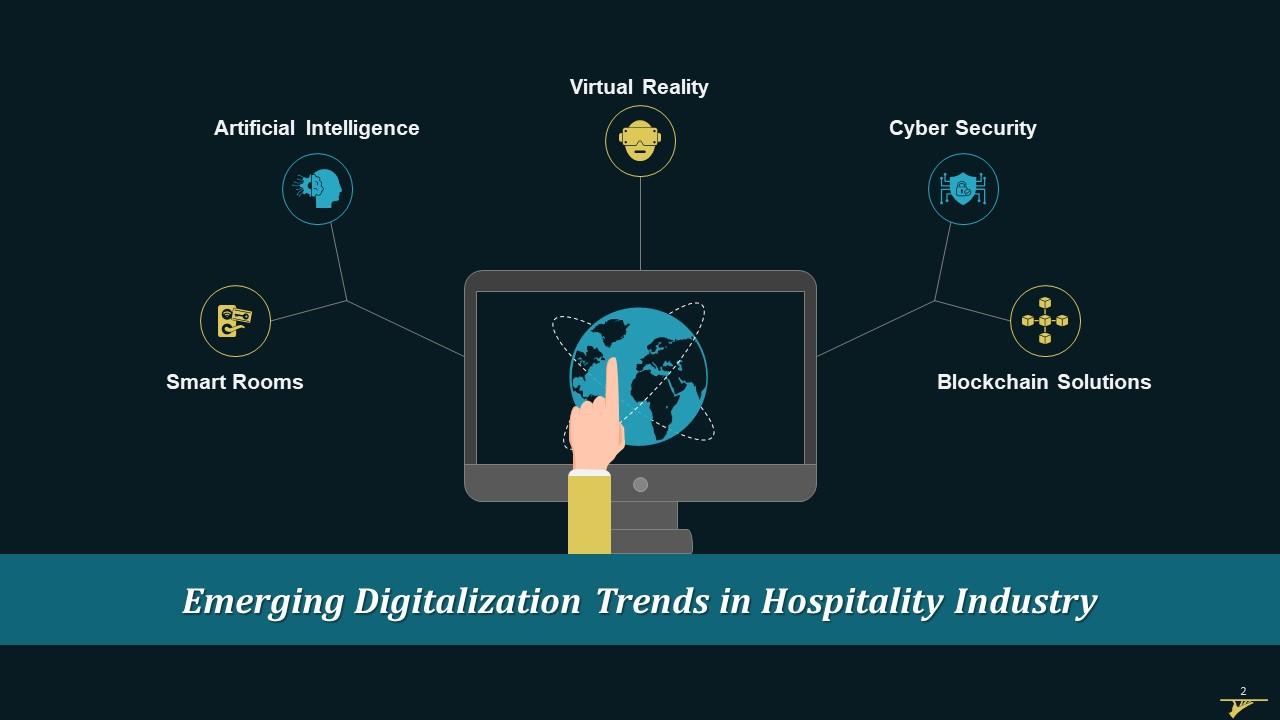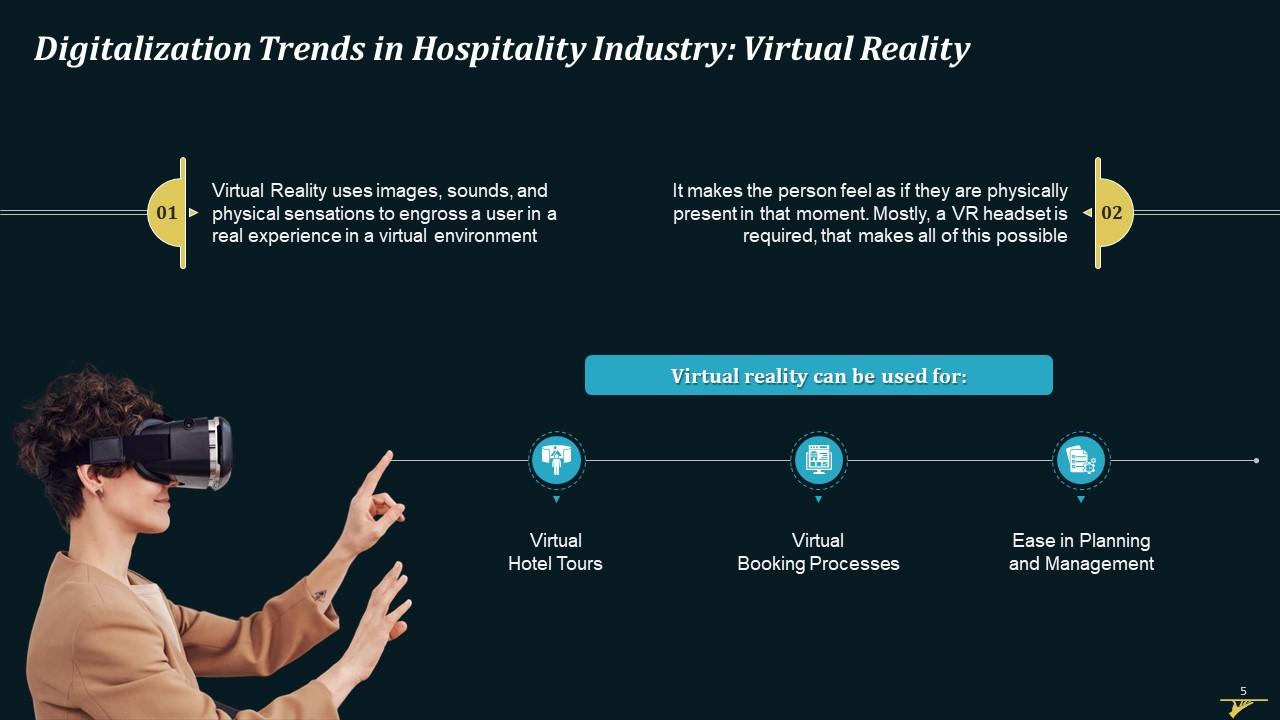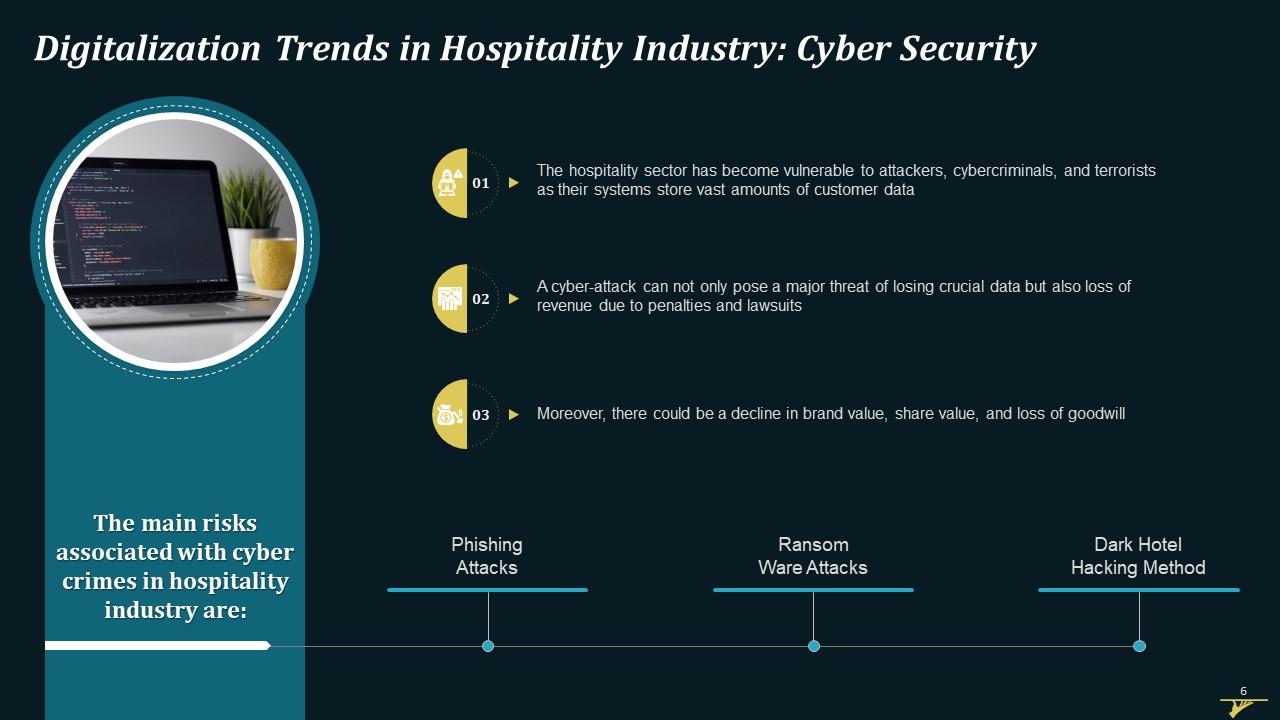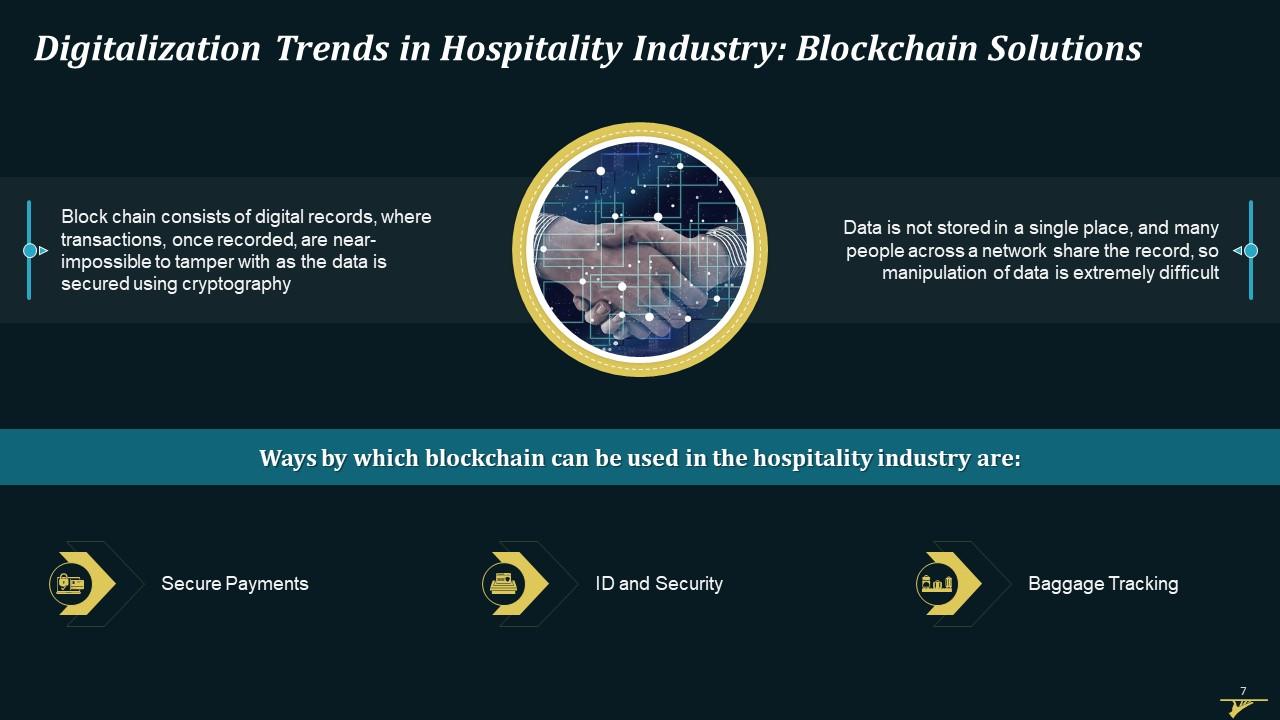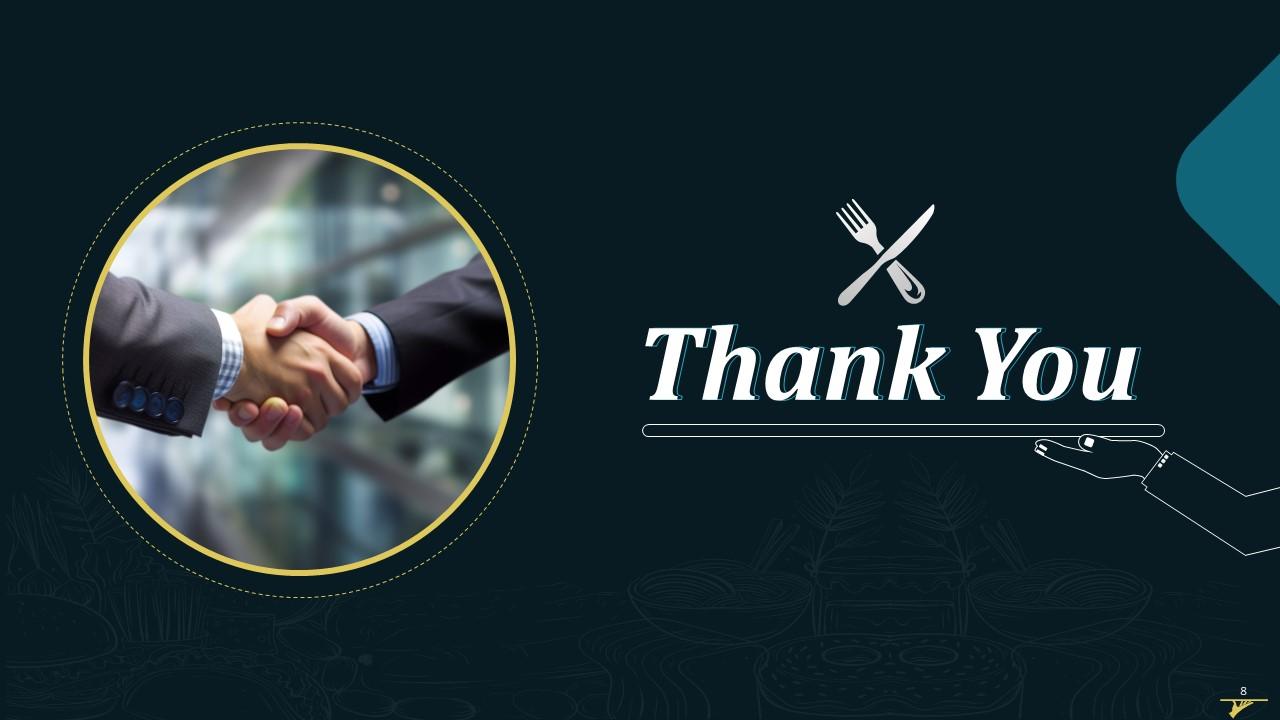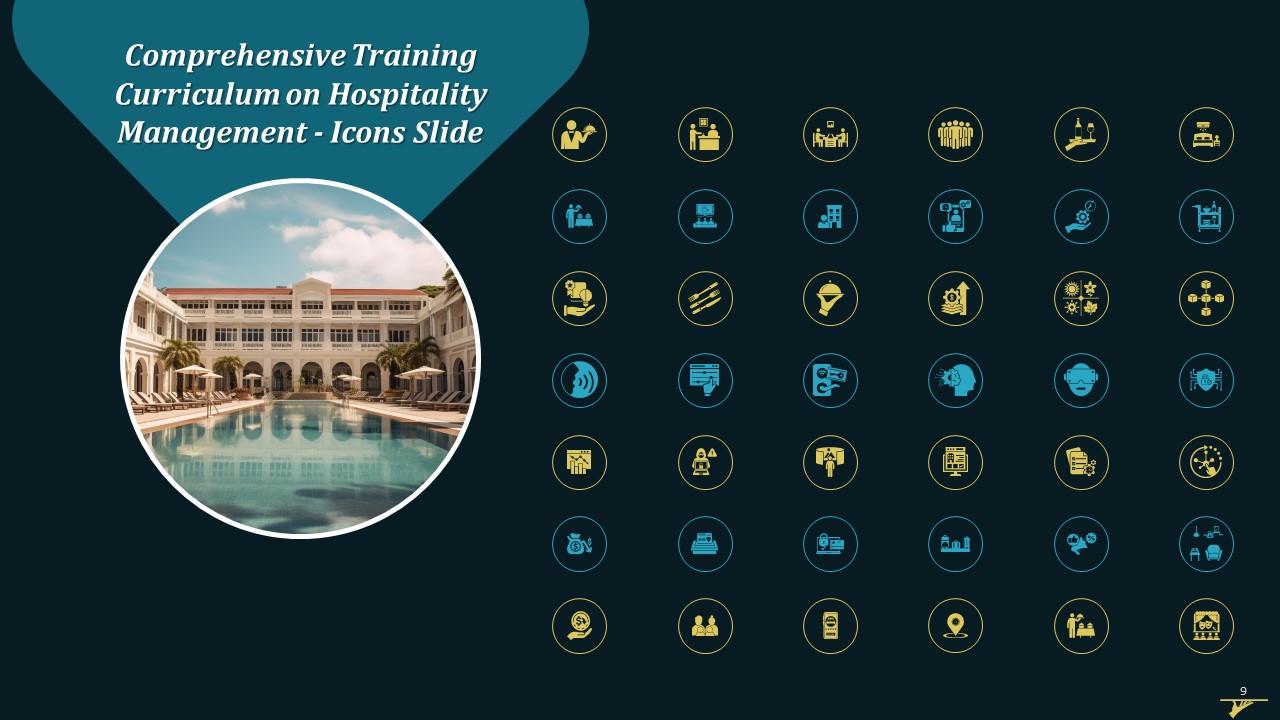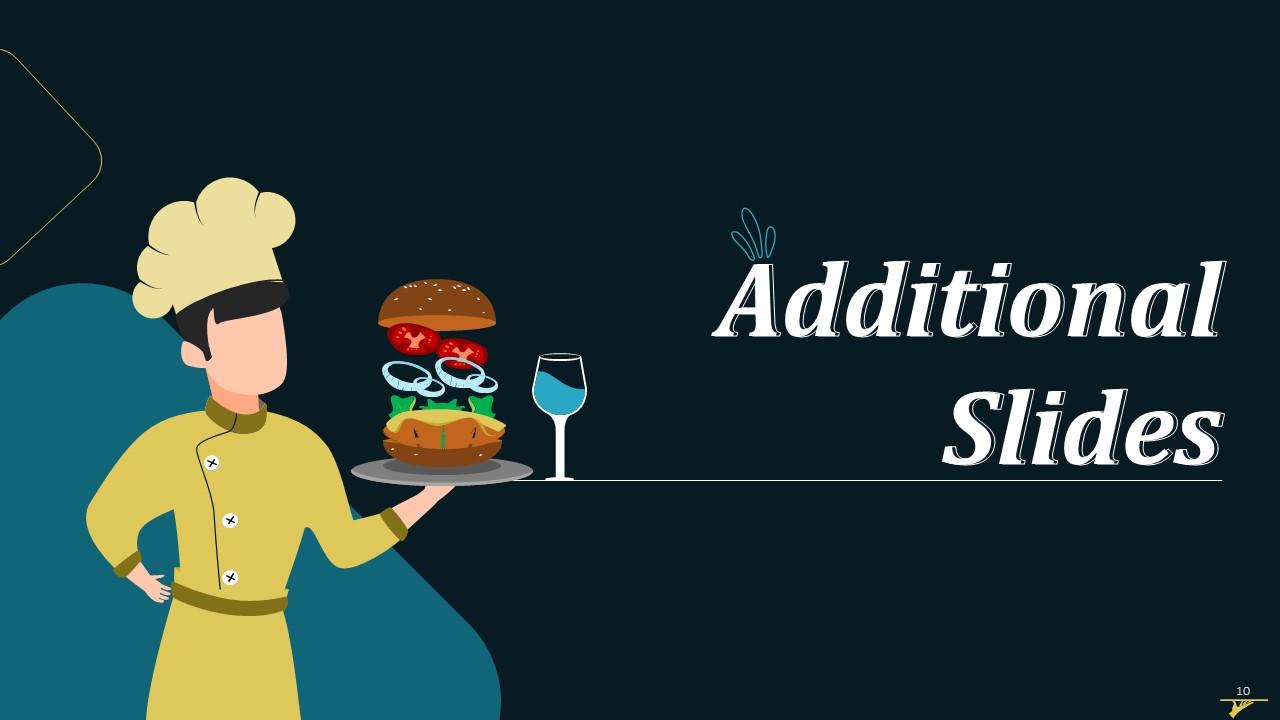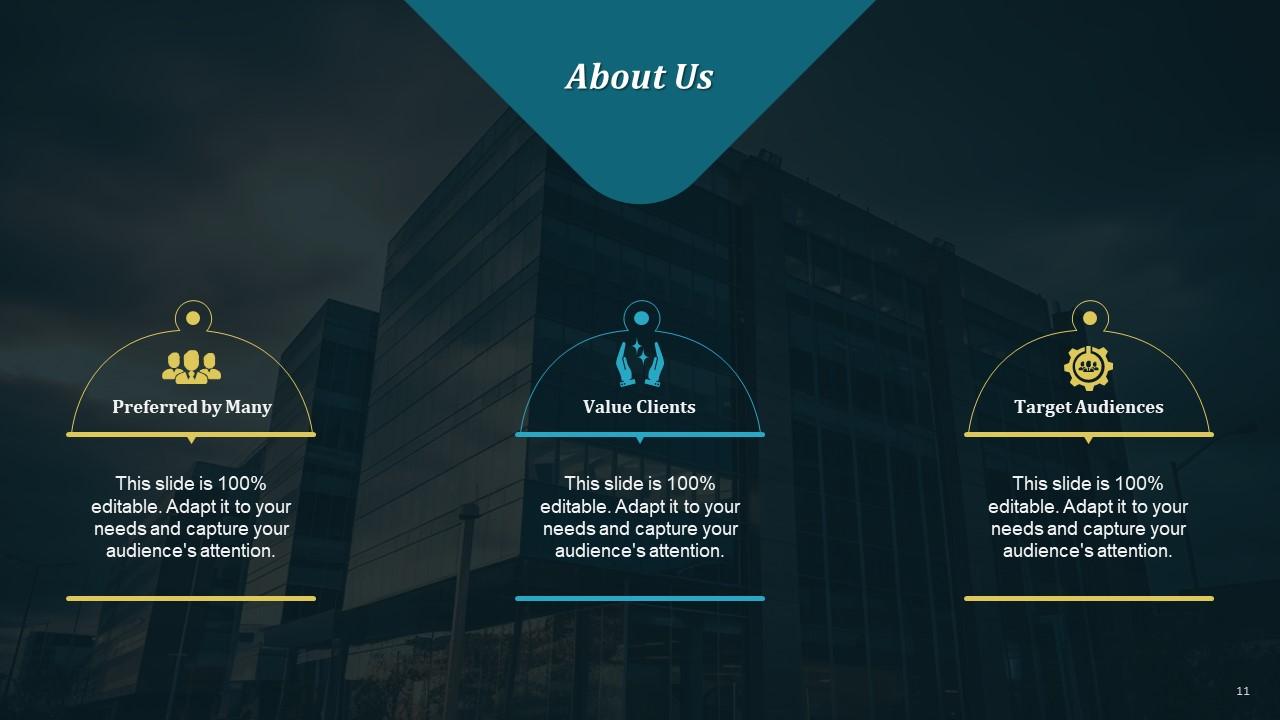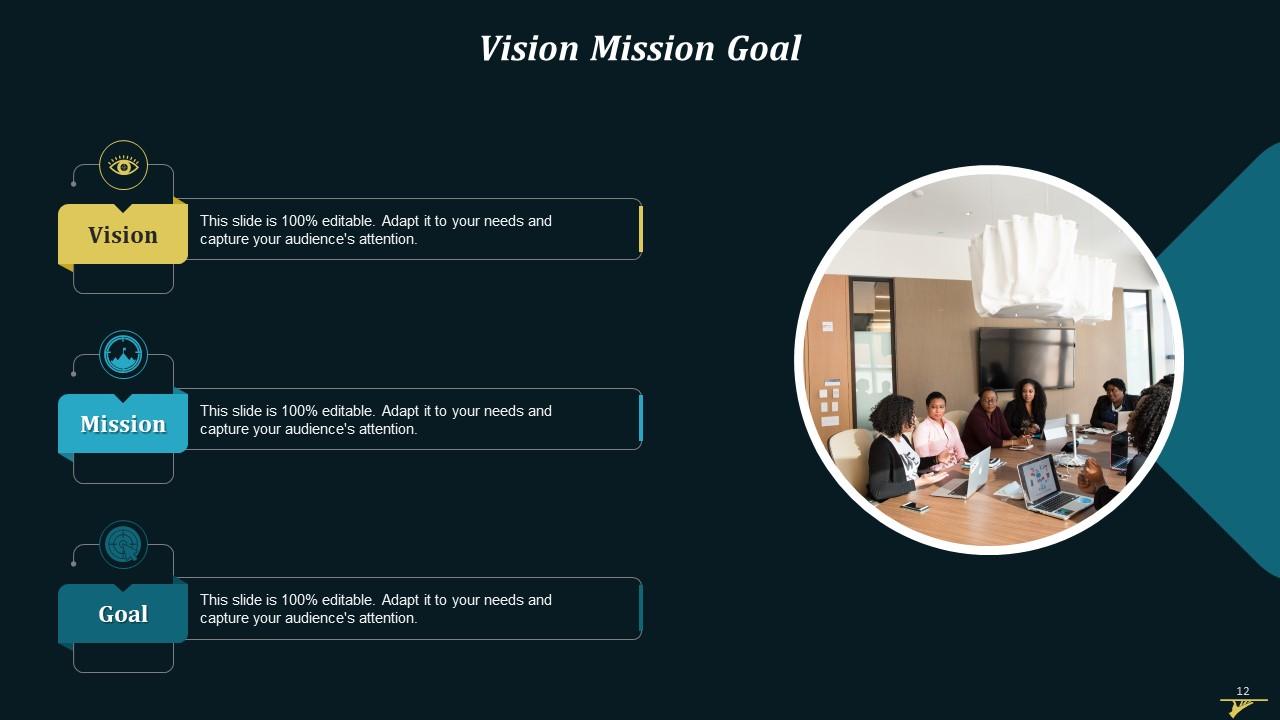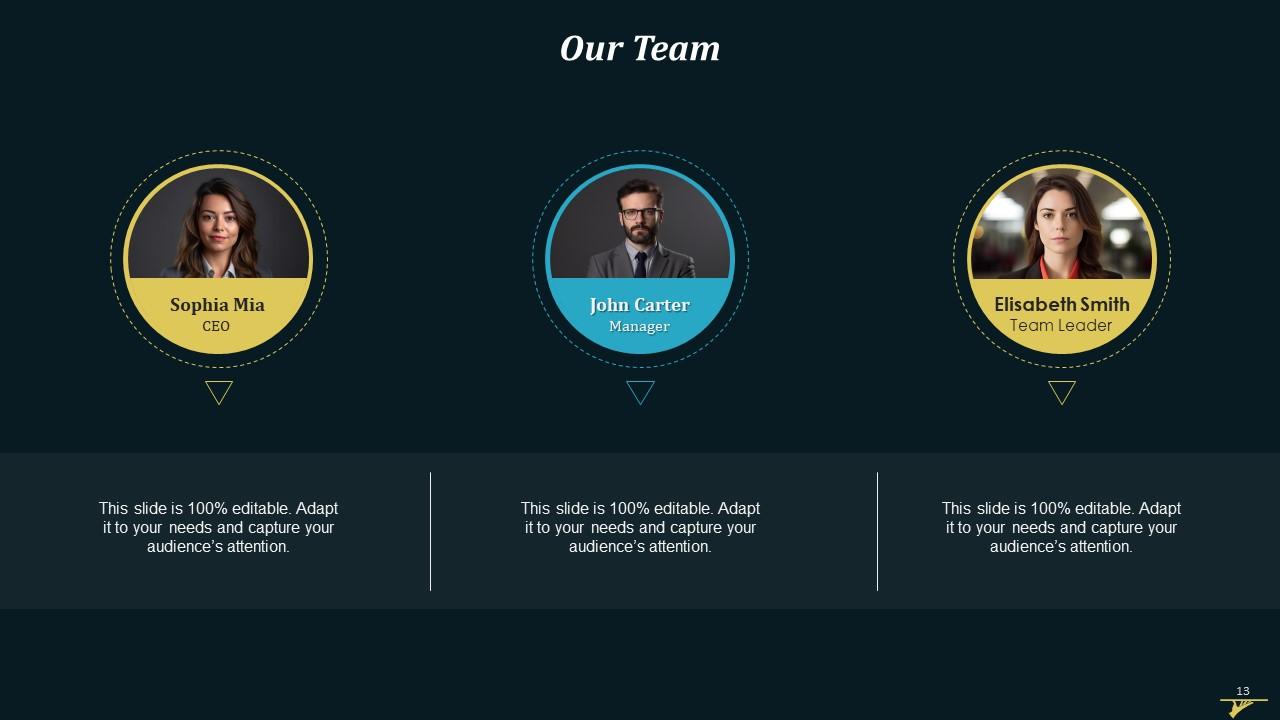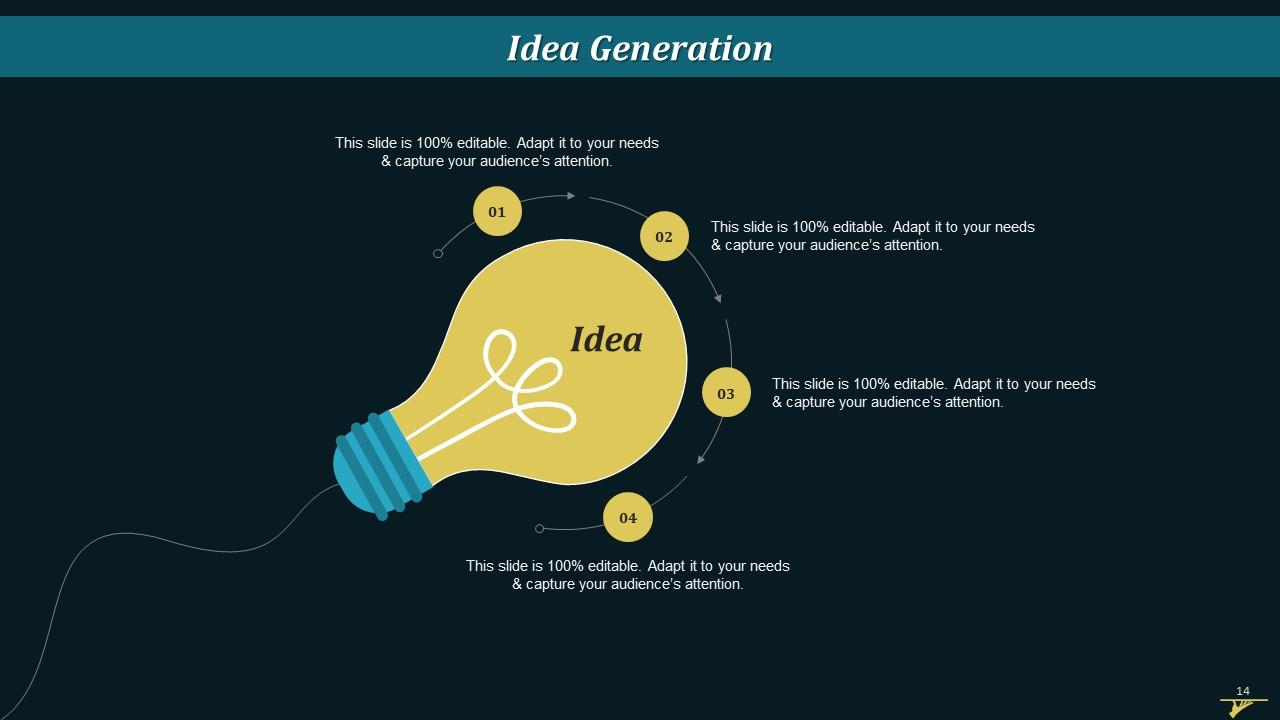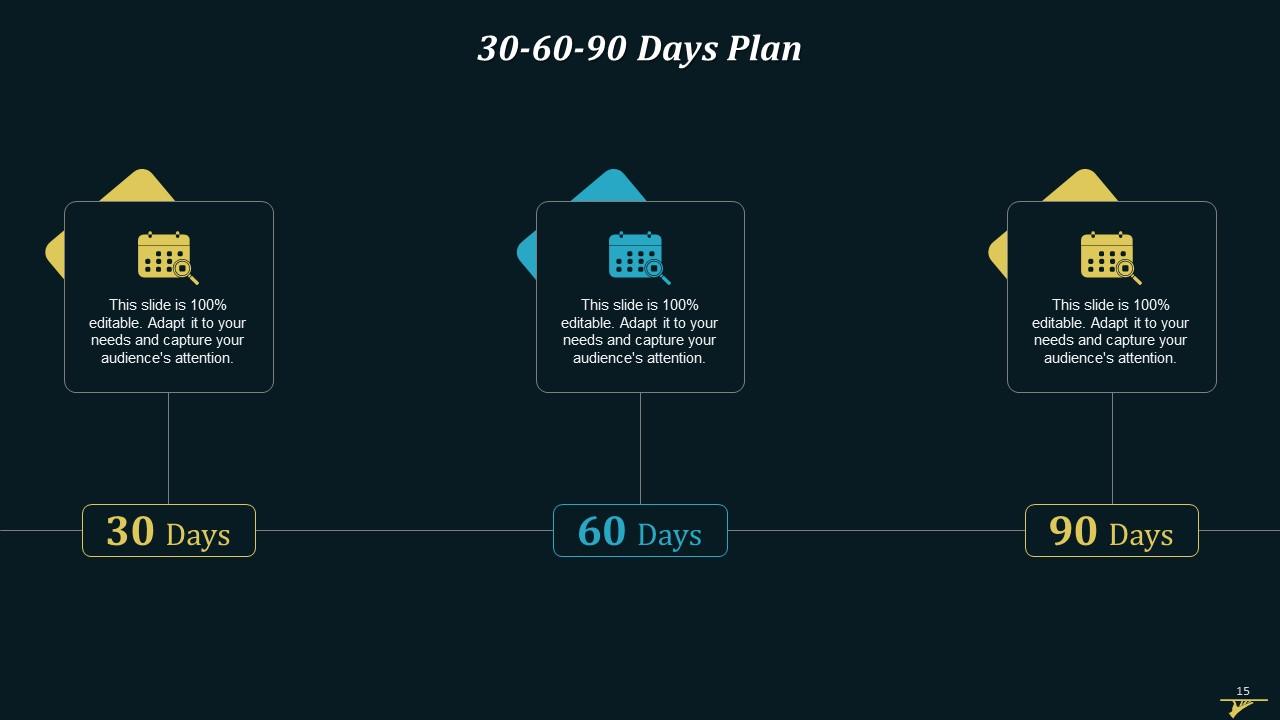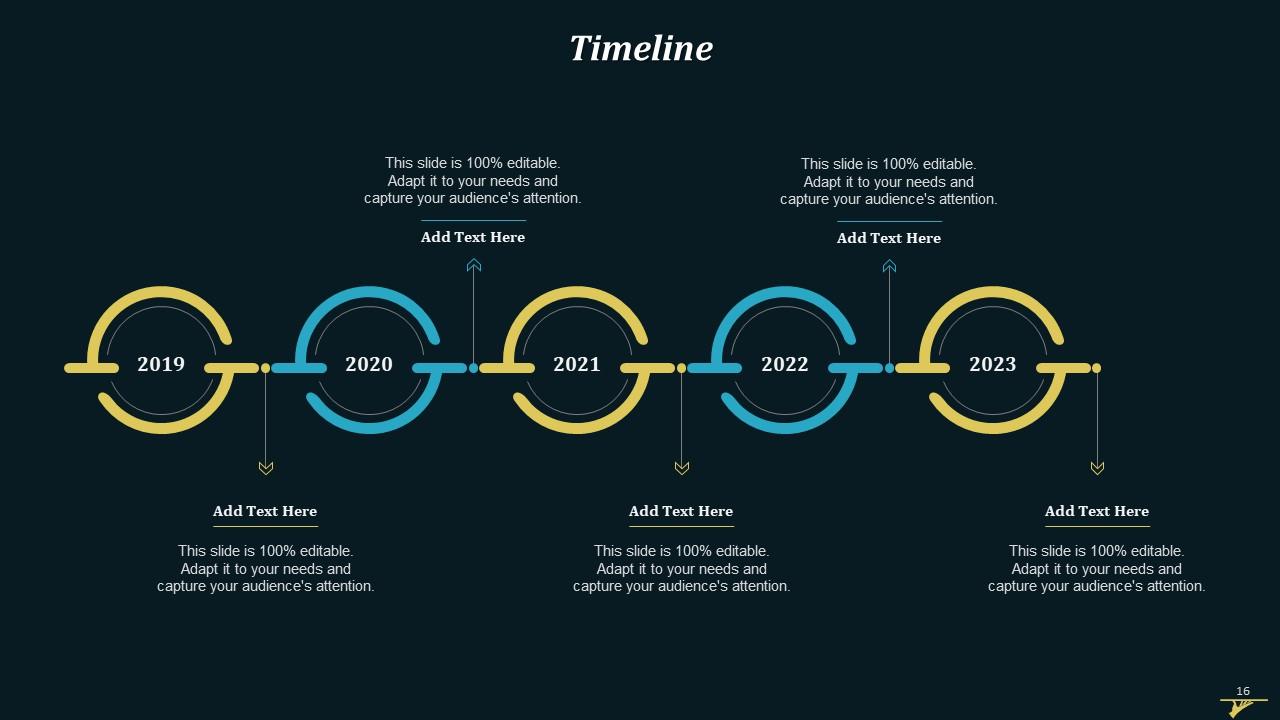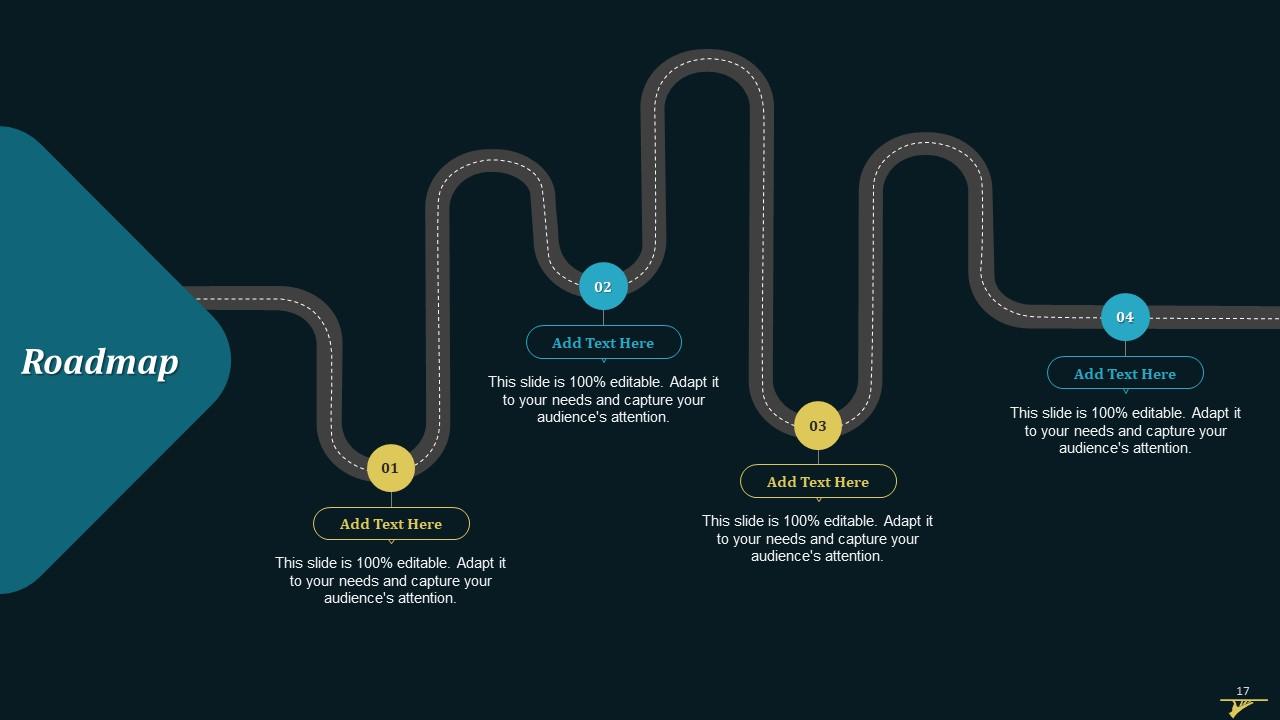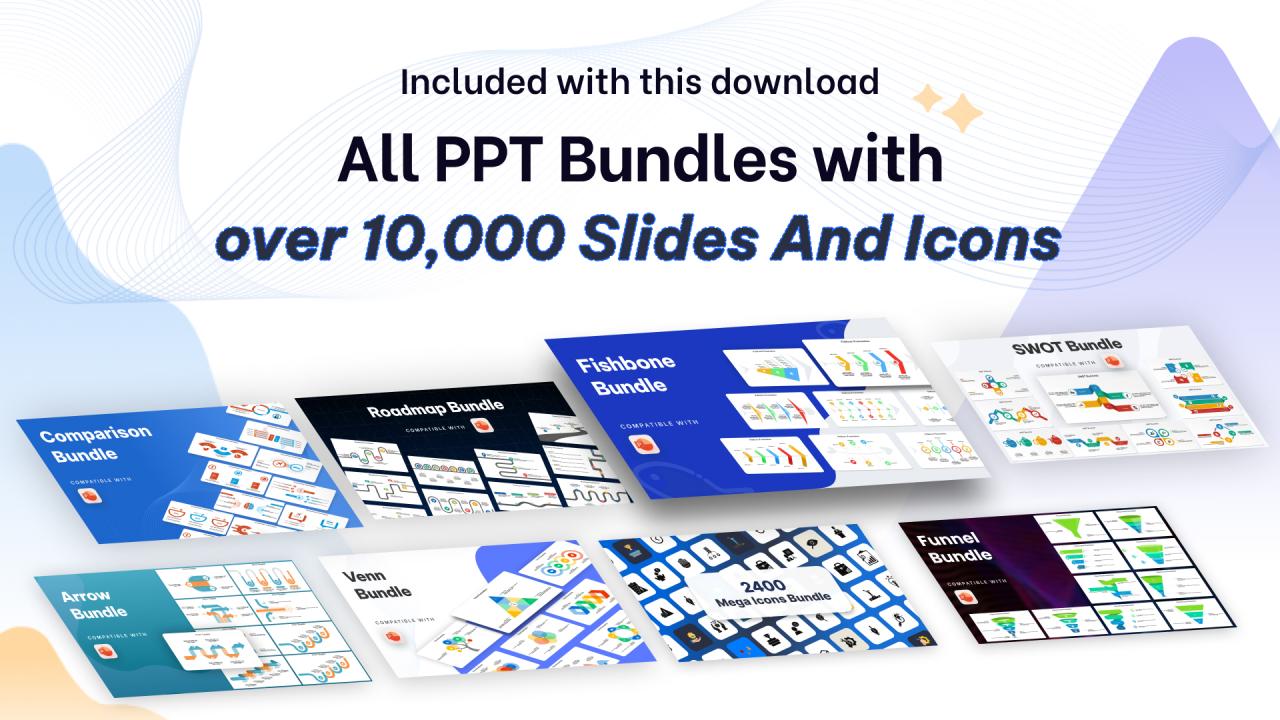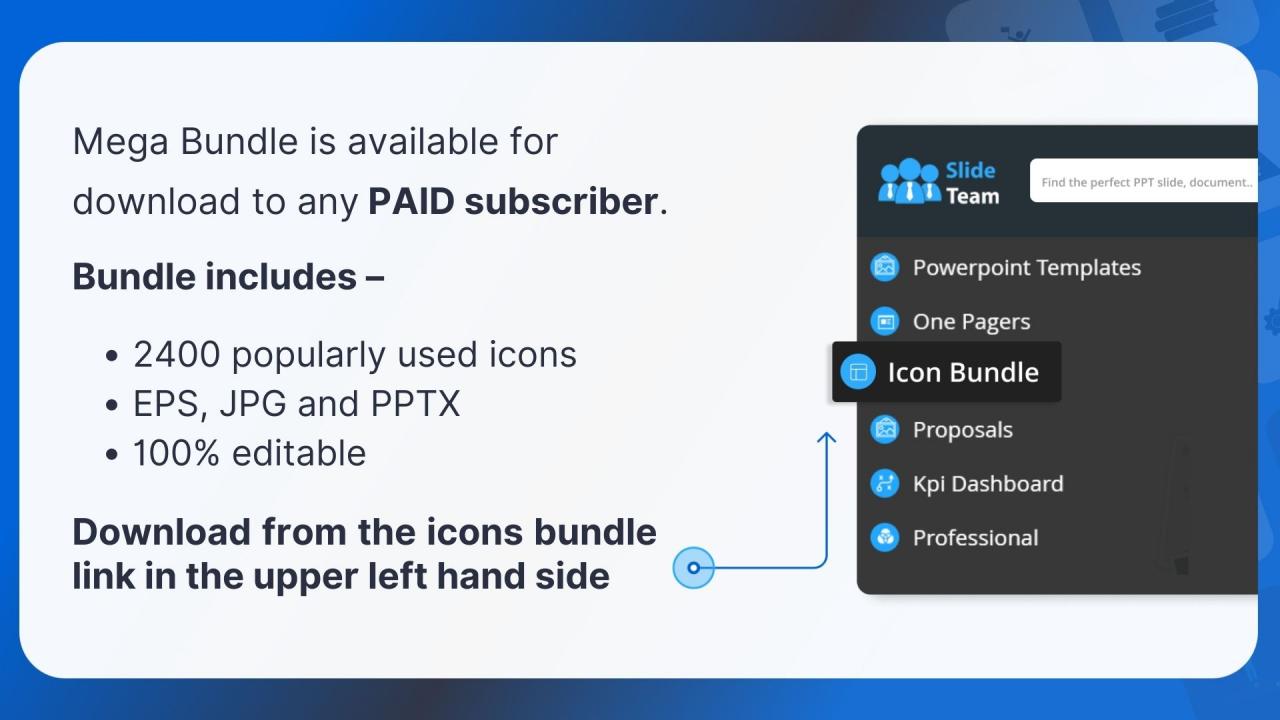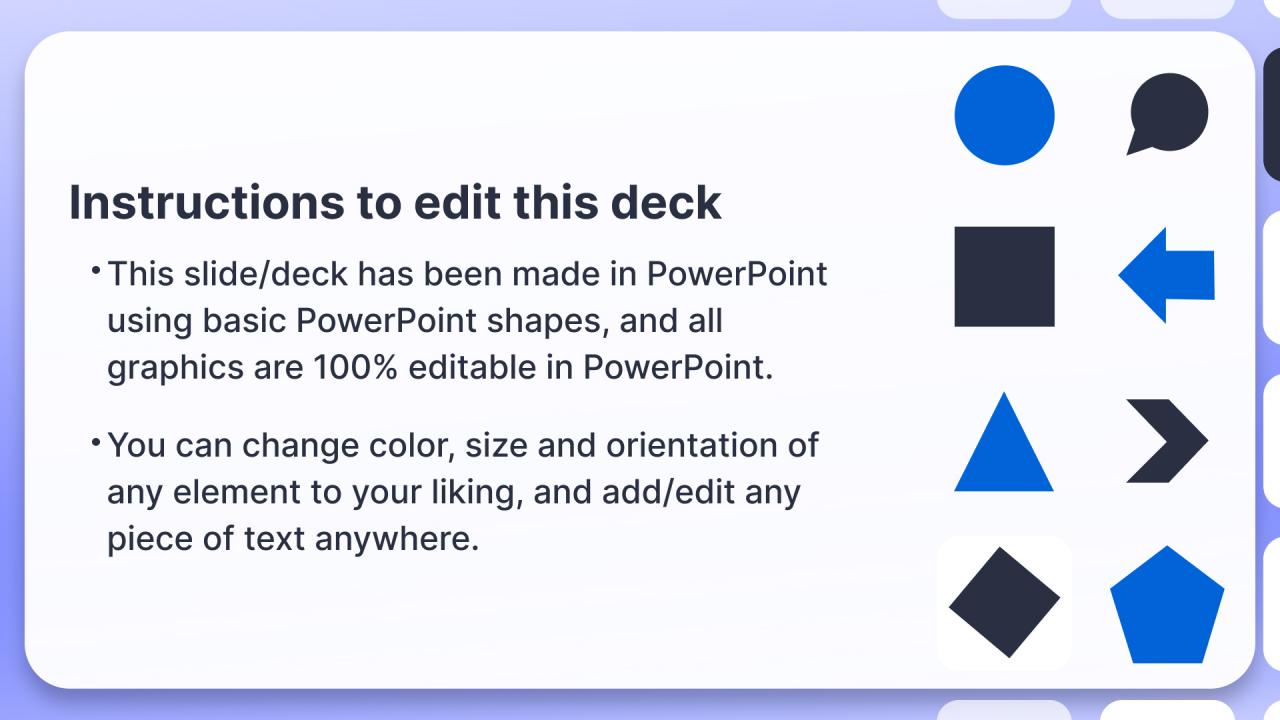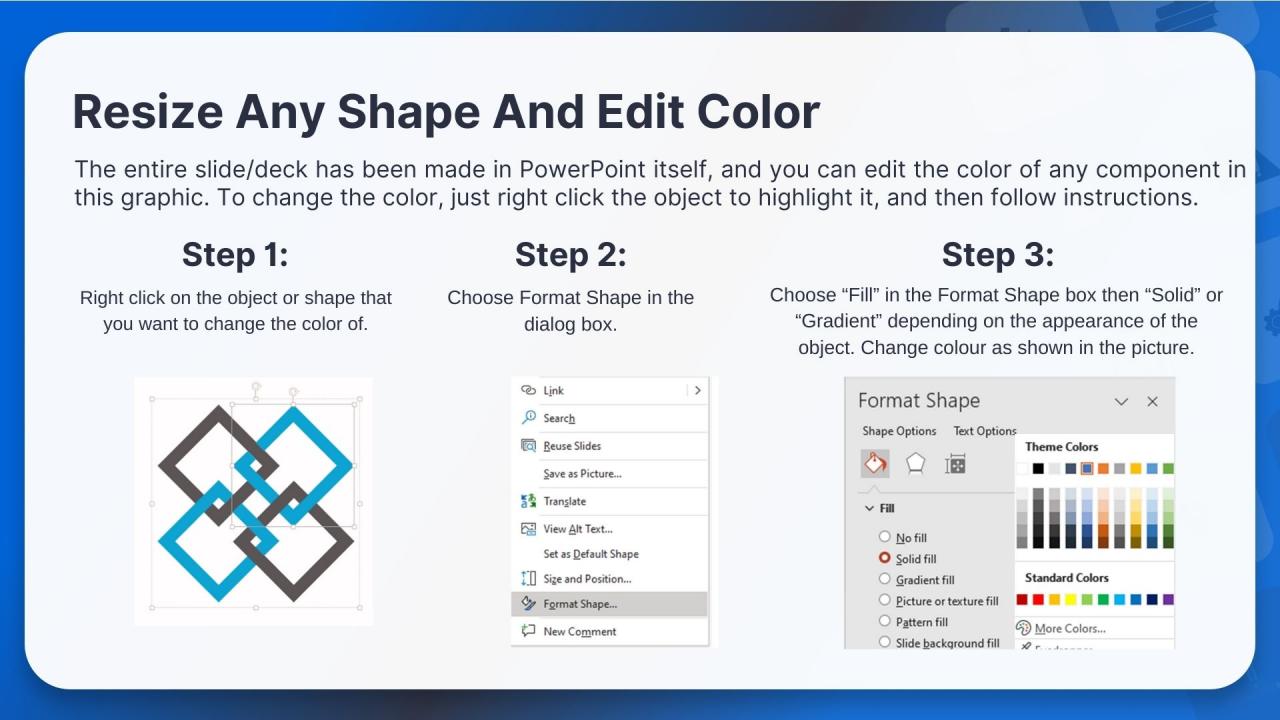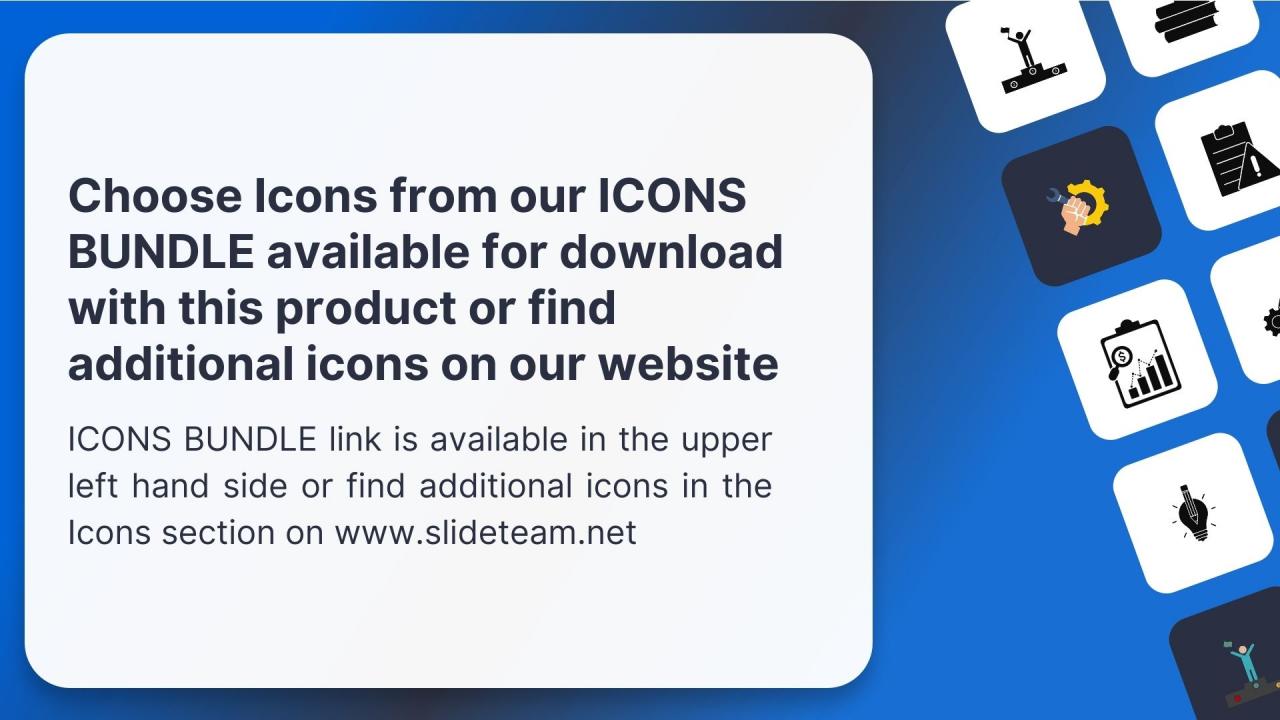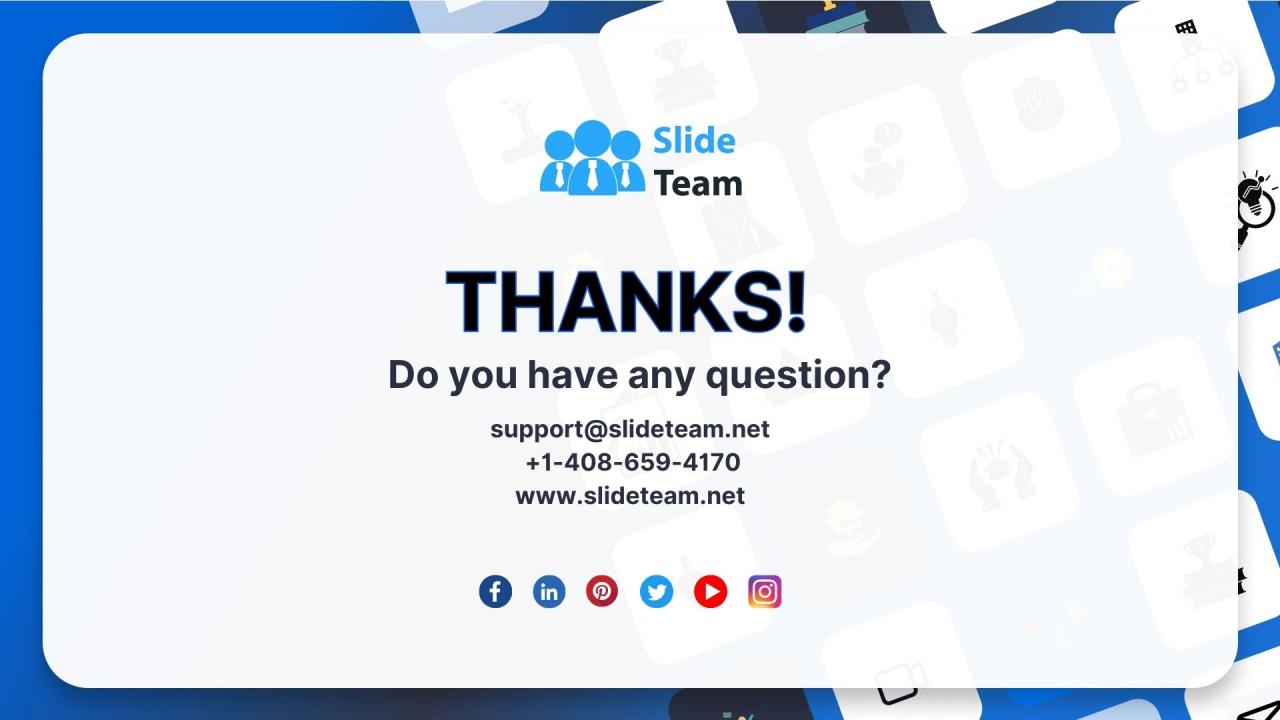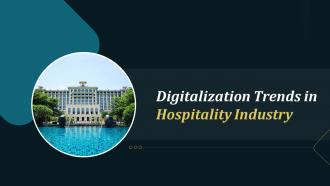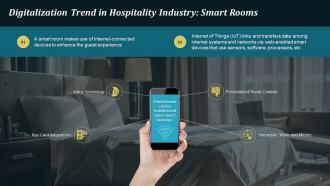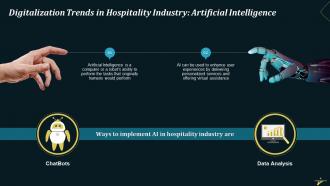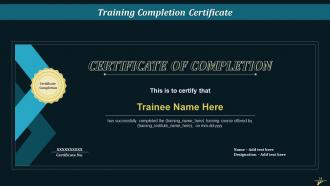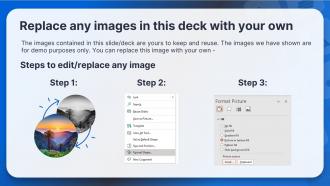Digitalization Trends In Hospitality Industry Training Ppt
This set of slides in detail covers the emerging digitalization trends in the hospitality industry such as smart rooms, artificial intelligence, virtual reality, cyber security, and blockchain solutions.
This set of slides in detail covers the emerging digitalization trends in the hospitality industry such as smart rooms, art..
- Google Slides is a new FREE Presentation software from Google.
- All our content is 100% compatible with Google Slides.
- Just download our designs, and upload them to Google Slides and they will work automatically.
- Amaze your audience with SlideTeam and Google Slides.
-
Want Changes to This PPT Slide? Check out our Presentation Design Services
- WideScreen Aspect ratio is becoming a very popular format. When you download this product, the downloaded ZIP will contain this product in both standard and widescreen format.
-

- Some older products that we have may only be in standard format, but they can easily be converted to widescreen.
- To do this, please open the SlideTeam product in Powerpoint, and go to
- Design ( On the top bar) -> Page Setup -> and select "On-screen Show (16:9)” in the drop down for "Slides Sized for".
- The slide or theme will change to widescreen, and all graphics will adjust automatically. You can similarly convert our content to any other desired screen aspect ratio.
Compatible With Google Slides

Get This In WideScreen
You must be logged in to download this presentation.
PowerPoint presentation slides
Presenting Digitalization Trends in Hospitality Industry. These slides are 100 percent made in PowerPoint and are compatible with all screen types and monitors. They also support Google Slides. Premium Customer Support available. Suitable for use by managers, employees, and organizations. These slides are easily customizable. You can edit the color, text, icon, and font size to suit your requirements.
People who downloaded this PowerPoint presentation also viewed the following :
Content of this Powerpoint Presentation
Slide 2
This slide highlights emerging digitalization trends in the hospitality industry which are smart rooms, artificial intelligence, virtual reality, cyber security, blockchain solutions.
Instructor’s Notes:
The emerging trends in hospitality industry are as follows:
- Smart Rooms: Smart hotel might make use of the Internet of Things (IoT) which enables controlling each room as a separate room through an internet-enabled HVAC (heating, ventilation and air-conditioning) system. The guests may also have the option of using technology, such as phone apps or voice control, to make it simpler for them to manage the temperature in the room, the lighting, and the entertainment systems
- Artificial Intelligence: With the help of Artificial Intelligence, hotels are able to increase personalization to tailor recommendations according to customers' preferences. In-person customer service with the help of robots, chatbots, and messaging allows customers to seek instant responses
- Virtual Reality: Virtual reality aids a hotel in making their guests experience and explore things rather than just reading descriptions. This can be done via virtual hotel tours using a VR headset where they can take a look at their hotel room before they book it. The surroundings may be enhanced with graphical or informative overlays using augmented reality
- Cyber Security: Loss of private data such as clients' payment details, and managers' information could lead to a crash in workflow. Hotels need to inculcate modern hospitality apps that deal with safe storage of client information and payment details, ensuring that it's backed up and recoverable. Leaving such data vulnerable to cyber attacks is a big no, or the establishment runs the risk of being driven out of business
- Blockchain Solutions: Blockchain allows crypto currencies as a payment option at a hotel; this is a service that is increasingly becoming common at branches of luxury hotel groups
Slide 3
This slide highlights the prevailing digitalization trend of smart rooms in hospitality industry. A smart room makes use of Internet of Things to link and transfer data among internet systems and networks via web-enabled smart devices that use sensors, software, processors, etc
Instructor’s Notes:
A hotel room can be transformed into a smart room by:
- Key Card Integration: Key card integrations allow unlocking of doors from smart phones and provides access to hotel facilities as and when required without the 24-hour presence of staff
- Voice Technology: A voice controlled system enables guests to regulate lights, music, television in hotel room with the help of voice commands
- Personalized Room Controls: With the help of technology, guests would be able to adjust the lighting, water temperature, and set the ideal room temperature even before they arrive
- Interactive Walls and Mirrors: Smart rooms could contain digital mirrors which can tell the restaurant hours, the weather, places to go for dinner, etc. Likewise, interactive walls could help with things like traffic, tourist attractions, show maps in real-time, and a lot more
Slide 4
This slide represents use of Artificial Intelligence in hospitality industry. It can be used to enhance user experience by delivering personalized services and offering virtual assistance.
Instructor’s Notes:
Artificial Intelligence (AI) usability in hospitality industry:
- Chatbots: Chatbots facilitate instant responses to frequently asked questions. For example, information about areas of the hotel, etc. They are programmed to speak a variety of languages and adapt according to the audience. Also, such technology proves more appealing to the guests and makes one less dependent on hiring multilingual staff
- Data Analysis: Technology helps in conducting data analysis where it can be quickly sorted, analyzed, and interpreted. It allows the hotel to focus on the target audience and formulate strategies to attract them
Slide 5
This slide represents the use of virtual reality in the hospitality industry. It can be used for virtual hotel tours, virtual booking processes, and ease in planning and management.
Instructor’s Notes:
Virtual reality can be made use of in the following manner:
- Virtual Hotel Tours: With virtual reality, customers can now visit the hotel and take a glance at their hotel room or any other areas of the hotel. They need not go through website images or searches when they can experience the 360-degree view using a VR headset
- Virtual Booking Process: Using virtual reality headset, potential guests can have virtual tours of hotel rooms. This enables them to compare rooms, and makes the booking process much simpler, effective and cheaper
- Ease in Planning and Management: Guests can have the opportunity to experience a bird's eye view of their destination and navigate tourist destinations and attractions, virtually. The VR headset might also help connect with other travelers who have VR hardware and exchange feedback
Slide 6
This slide showcases how cyber crime has become a major concern in the hospitality industry. A cyber-attack can not only pose a major threat of losing crucial data but also loss of revenue due to penalties and lawsuits. Moreover, there could be a decline in brand value, share value, and loss of goodwill.
Instructor’s Notes:
The main risks associated with cyber crimes in the hospitality industry are:
- Phishing Attacks: The term phishing means sending or receiving impersonated emails that aim to trick the victim and push them to reveal sensitive information such as log-in details, credit/debit card details, passwords etc
- Ransomware Attacks: Ransomware is a malware that threatens to publish data if the victims fail to pay to have the data restored. Machines are infected with a virus that encrypts the data
- Dark Hotel Hacking Method: Dark hotel hackers first gain access to a hotel's Wi-Fi system, then, by forging digital certificates, convinces victims to download that software and peeps into their private information. This is specifically done to target high-profile guests
Slide 7
This slide highlights how blockchain can be put into use in the hospitality industry. It consists of digital records, where transactions, once recorded, are quite difficult to amend as the data is secured using cryptography
Instructor’s Notes:
Ways by which blockchain can be used in the hospitality industry are:
- Secure Payments: Associated costs for hotels can be reduced, and bank payments can be streamlined with the acceptance of cryptocurrencies as a payment mechanism
- ID and Security: The ID of guests is required at various stages of their journey, but blockchain could potentially allow for a shared digital database. With the help of that, for example, passengers could just provide a fingerprint to quickly verify their identity and proceed with their tasks
- Baggage Tracking: A guest's luggage changes hands many times over the course of their journey, which can result in logistical problems. Blockchain can allow companies to easily share and access related data, which will help track the luggage
Digitalization Trends In Hospitality Industry Training Ppt with all 27 slides:
Use our Digitalization Trends In Hospitality Industry Training Ppt to effectively help you save your valuable time. They are readymade to fit into any presentation structure.
-
Like always a great experience with you guys. Always there on the drop of hat to help.
-
Amazing variety of PowerPoint slides. Really helpful in designing professional presentations.



